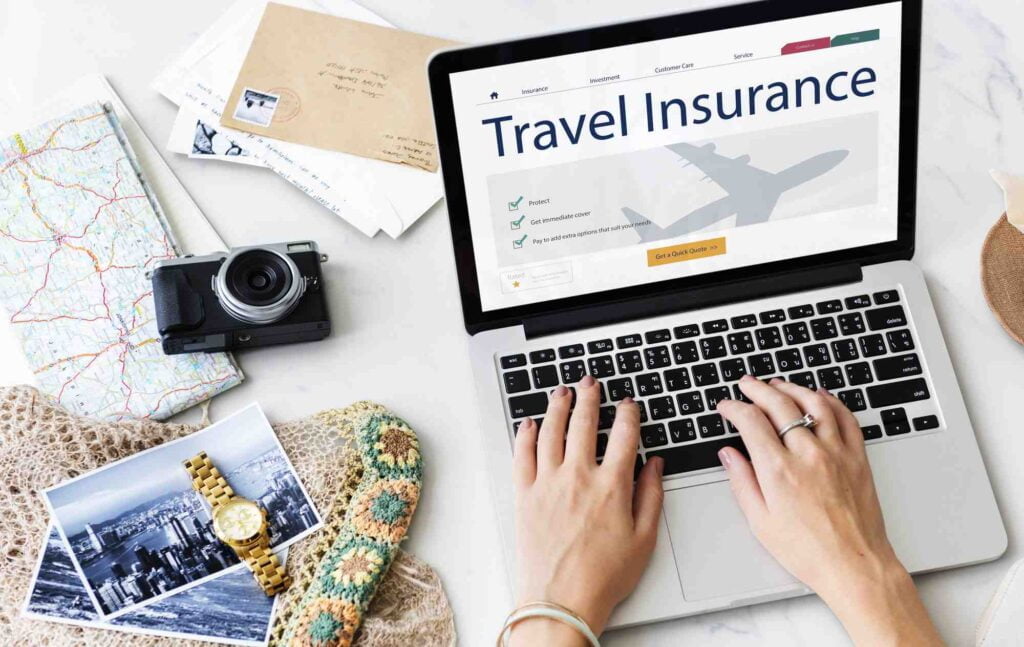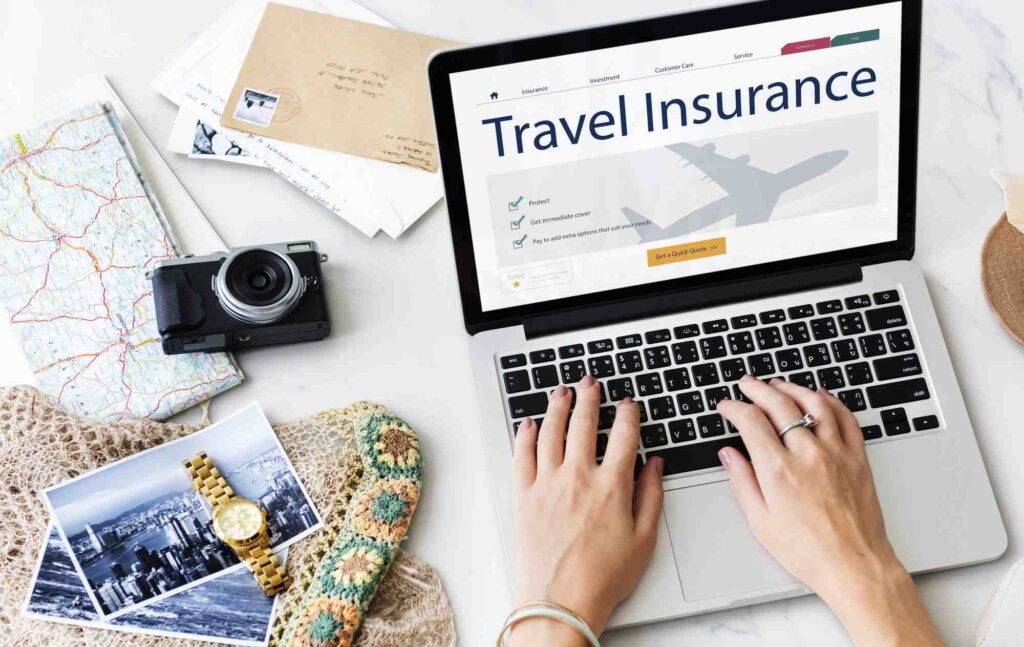Traveling is an exciting adventure that opens up a world of new experiences and cultures. However, it’s important to be aware of potential pitfalls that can turn your dream vacation into a nightmare. One common issue is falling victim to travel scams. Some shady travel agents might try to take advantage of eager travelers by offering deals that seem too good to be true or selling non-existent services.
In this article, we’ll help you navigate the tricky parts of the travel industry and show you how to spot the warning signs of a scam. From deals that sound too perfect to high-pressure sales tactics, we’ll give you the tools to recognize suspicious travel agents and protect your vacation plans. Before you pack your bags and head off on your next adventure, let’s make sure your journey is not only exciting but also safe and secure.
Signs of a Travel Scam
It’s crucial to recognize the signs of a travel scam. Here are some key indicators:

- Too Good to Be True: If a deal seems too good to be true, it probably is. Scammers often lure victims with significantly lower prices than other travel agencies.
- High-Pressure Sales Tactics: Scammers often create a sense of urgency to pressure you into making a booking. They may claim that the offer is for a ‘limited time only’ or that only a few spots are left.
- Unconventional Payment Methods: Be wary if the travel agent insists on non-traditional payment methods such as wire transfers, prepaid gift cards, or cryptocurrencies. Reputable agencies will typically accept credit cards or secure online payment platforms.
- Lack of Documentation: A legitimate travel agent will provide you with all the necessary documentation such as receipts, confirmation emails, and tickets. If the agent is hesitant to provide these, it could be a red flag.
- No Business History or Reviews: Do some research on the travel agency. If you can’t find any information about them online, or if they have a lot of negative reviews, it could be a sign of a scam.
- Non-Existent Addresses or Contact Information: Scammers often provide fake addresses or contact information. Always verify the physical address and try contacting them on their official number.
- Vague or Incomplete Information: Scammers often provide vague or incomplete information about travel plans. They may avoid giving details about the hotel, flights, or itinerary.
- No License or Affiliation: Legitimate travel agents are usually licensed or affiliated with a recognized travel authority. If your agent cannot provide proof of such affiliations, it’s a red flag.
- Unresponsive or Poor Customer Service: If the agent is unresponsive to your queries or if their customer service is poor, it could be a sign of a scam. A legitimate business would value customer satisfaction and be prompt in addressing concerns.
- Upfront Full Payment: Be cautious if the agent insists on full payment upfront for the trip. Most reputable agencies will provide options for a deposit or installments.
- Hidden Fees: Some scammers may quote a low price initially, but later add on various hidden charges. Always ask for a detailed breakdown of costs.
- Unsolicited Contact: If you receive unsolicited calls or emails from a travel agency offering deals, be wary. This is a common tactic used by scammers.
By keeping an eye out for these signs, you can better protect yourself from falling victim to a travel scam. Remember, it’s always better to be safe than sorry, so take the time to do your research and trust your instincts.
Researching the Agent
Researching the travel agent is a crucial step in avoiding scams. Here are some tips on how to do it effectively:
- Check for Credentials: Legitimate travel agents should be able to provide credentials such as a business license or certification from a recognized travel authority. In the United States, for example, many travel agents are certified through the American Society of Travel Agents (ASTA).
- Read Reviews and Testimonials: Look for reviews and testimonials from previous customers. These can often be found on the agency’s website, social media pages, or on review platforms like TripAdvisor or Yelp. Be wary if all the reviews are overly positive or seem too similar, as they may be fake.
- Verify Physical Address and Contact Information: Legitimate businesses should have a physical address and contact information. Try calling the provided phone number to see if it’s operational. You can also use online maps to check if the physical address exists.
- Check Business History: Look into how long the agency has been in business. Companies with a long history are often more reliable than those that have just started. However, this is not always the case, so it’s important to do further research.
- Ask for References: If possible, ask the agent for references from previous clients. This can give you firsthand information about their experiences.
- Consult with Professional Organizations: Professional organizations in the travel industry can often provide information about registered travel agents. For example, in the U.S., you can consult with ASTA.
Secure Payment Methods

When booking travel services, the method of payment you choose can significantly impact your financial security. Here are some of the safest ways to pay, with a special emphasis on the benefits of using credit cards:
Credit Cards: The Shield Against Fraud Credit cards are widely regarded as one of the safest payment methods, especially for travel services. They come with a host of benefits that provide layers of protection against fraud:
- Fraud Liability Protection: Federal law limits your liability for unauthorized credit card charges to $50. Many issuers go even further, offering zero liability policies.
- Chargebacks: If you dispute a charge, the credit card company can perform a chargeback, temporarily crediting you the amount in question while they investigate.
- Real-Time Monitoring: Credit card companies monitor transactions for suspicious activity and can alert you to potential fraud.
- Secure Online Payments: Credit cards use encryption and other security measures to protect your information during online transactions.
- Travel Insurance Benefits: Many credit cards offer travel insurance benefits, which can cover trip cancellations, interruptions, and even lost luggage when you pay with the card.
Alternative Secure Payment Methods While credit cards are highly recommended, there are other secure payment options to consider:
- Digital Wallets: Services like Apple Pay, Google Pay, and PayPal offer secure transactions with additional layers like encryption, biometric security, and tokenization, which can be particularly useful for online bookings.
- Gift Cards: For smaller transactions or casual online shopping, using a prepaid gift card can limit your liability if the card number is compromised.
Payment Methods to Avoid Some payment methods don’t offer the same level of protection and should be used cautiously:
- Debit Cards: Unlike credit cards, debit cards withdraw funds directly from your bank account, making it harder to recover funds in case of fraud.
- Bank Transfers: These lack chargeback rights and fraud protections, making them risky for payments to unfamiliar parties.
- Prepaid Cards: While safer than debit cards, they don’t offer the strong fraud protections that credit cards do.
Can You Buy Travel Insurance After Booking A Flight?
In conclusion, credit cards stand out as the safest way to pay for travel services, thanks to their robust fraud protection measures. Always ensure you’re using secure websites and keep an eye on your account for any unusual activity.
Fake Websites and Spoofing
The internet has revolutionized the way we plan and book our travels, but it has also opened the door to new forms of fraud. Fake travel agency websites pose a significant risk to travelers, mimicking legitimate booking sites to deceive users. Here’s what you need to know to stay safe:
Dangers of Fake Travel Agency Websites
- Identity Theft: Fake websites often aim to steal personal information, which can be used for identity theft.
- Financial Loss: By capturing payment details, scammers can make unauthorized transactions or drain bank accounts.
- Nonexistent Bookings: Travelers may arrive at their destination only to find that their accommodation or flight bookings do not exist.
How to Verify the Authenticity of a Website
- Check for Secure Connections: Look for “https” in the URL and a padlock icon, indicating a secure connection.
- Use Website Reputation Services: Tools like URLVoid or Scamvoid can help you check the reputation of a website and whether it’s been reported for fraudulent activities.
- Research the Company: Look up reviews and check the Better Business Bureau for the company’s record.
- Contact Information: Legitimate sites usually provide verifiable contact details. Be wary of sites with no phone number or physical address.
- Domain Age: Newer domains might be a red flag. You can use services that check the age of the domain to see how long the website has been operational.
- Spelling and Grammar: Official websites take care to avoid errors. Poor spelling and grammar can be a sign of a hastily created scam site.
Do I Need Extra Travel Insurance for A Cruise?
By being vigilant and using these verification methods, you can protect yourself from the risks associated with fake travel agency websites and ensure that your travel plans are secure.
Too-Good-To-Be-True Offers
Indeed, “too-good-to-be-true” offers are a common tactic used in travel scams. Here’s how they work and how you can protect yourself:
- Drastic Discounts: Be skeptical of discounts that significantly undercut standard prices. Scammers use these unbelievable rates to get your attention and entice you into a quick decision.
- Full Packages for a Fraction: Offers that include flights, hotels, and extras like meals or tours at a price that seems like a steal should raise an eyebrow. Compare with similar packages from established providers to gauge if it’s realistic.
- Limited-Time Offers: Creating a false sense of urgency is a tactic to bypass your better judgment. If you’re being rushed with statements like “offer ends soon” or “last chance,” take a step back.
- Vague Details: Scammers often provide little to no detail about the itinerary, lodging, or flights. Legitimate deals come with clear, comprehensive information.
- Upfront Payment Demands: A common scam strategy is to require immediate, often non-refundable, payment to secure the “deal,” usually through unsecured methods.
- No Paper Trail: If the agency is reluctant to provide written confirmation or a detailed contract outlining the services, it’s a red flag.
- Nonexistent Reviews: A legitimate offer will have a history of reviews and feedback. An absence of this, or a presence of only new, overly positive reviews, can indicate a scam.
By understanding these signs, you can steer clear of fraudulent offers that promise the world for less. Always do your research, trust your instincts, and remember that if an offer seems too good to be true, it probably is.
How Travel Insurance Can Protect Against Scams?
Travel insurance can provide a crucial safety net against potential scams and unexpected incidents during your journey. Here’s how:

- Financial Protection: Travel insurance can offer financial protection against scams. For instance, if a travel agency goes out of business or fails to deliver the promised services, a comprehensive travel insurance policy may cover the financial loss.
- Coverage for Stolen Belongings: If your belongings are stolen during your trip, which can sometimes be a result of scams, travel insurance can provide coverage for the loss.
- Emergency Assistance: Travel insurance often includes 24/7 emergency assistance. This can be invaluable if you find yourself in a difficult situation due to a scam.
- Reimbursement for Unexpected Expenses: If a scam results in unexpected expenses, such as having to book last-minute accommodations or flights, travel insurance may cover these costs.
- Peace of Mind: Perhaps most importantly, having travel insurance can give you peace of mind. Knowing that you’re protected can make it easier to deal with any issues that arise, including potential scams.
Remember, it’s important to read the fine print of your travel insurance policy to understand exactly what is covered. Policies can vary, and not all will cover every type of scam.
Action Steps if Scammed
If you suspect you’ve been scammed, it’s important to take immediate action. Here are some steps you should follow:
- Don’t Send Any More Money: If you’ve already sent money to a potential scammer, stop all further payments.
- Block All Contacts from the Scammer: This includes phone numbers, email addresses, and social media accounts.
- Contact Your Bank or Financial Institution: Report the scam to your bank or credit card company as soon as possible. They may be able to stop a transaction or close your account if it has been compromised.
- Report the Scam: It’s important to report the scam to the appropriate authorities. This could include your local police department, your state attorney general’s office, or a consumer protection agency. You can also report the scam to the Federal Trade Commission (FTC) through their website: ReportFraud.ftc.gov.
- Warn Your Family and Friends: Let your family and friends know about the scam so they can protect themselves.
- Check for Identity Theft: If you’ve given out personal information, check your credit reports to make sure the scammer hasn’t opened any new accounts in your name.
- Document Everything: Keep a record of all communications and transactions related to the suspected scam. This can be helpful if you need to report the scam or dispute a transaction.
- Change Your Passwords: If you’ve shared any passwords or other sensitive information, change them immediately to prevent further unauthorized access.
- Monitor Your Accounts: Keep a close eye on your bank and credit card accounts for any unauthorized transactions. If you notice anything suspicious, report it to your bank immediately.
- Contact a Legal Professional: If you’ve suffered significant financial loss, it may be worth consulting with a legal professional to explore your options.
Remember, the most effective way to deal with scams is to prevent them in the first place. Always be cautious and do your research before making any transactions or sharing personal information.
FAQs
Q 1. What are some common travel scams around the world and how can I avoid them?
Ans. Common travel scams include fake booking sites, overpriced taxi rides, and street scams like the ‘gold ring’ trick or the ‘broken camera’ scam. To avoid them, always use reputable booking sites, agree on taxi fares in advance, and be wary of strangers approaching you with seemingly innocent requests.
Q 2. What steps should I take if I’ve been a victim of a travel scam abroad?
Ans. If you’ve been scammed abroad, report the incident to local law enforcement, contact your bank or credit card company if you’ve lost money, and report the scam to your country’s embassy or consulate.
Q 3. Are there any specific travel scams that target senior citizens?
Ans. Yes, senior citizens are often targeted by scammers offering discounted travel packages that don’t exist or have hidden fees. Seniors should be cautious of unsolicited phone calls or emails offering travel deals and always research the company before making a booking.
Q 4. How can I check if a travel review site is trustworthy?
Ans. Check if the review site is affiliated with any recognized travel authorities, read multiple reviews to look for consistency, and be wary of sites where all reviews are overly positive or very similar.
Conclusion
Traveling is meant to be a joyful adventure, not overshadowed by the worry of getting scammed. Unfortunately, scams are out there, but you can take steps to protect yourself and have a great trip. Look out for signs of travel scams, research travel agents thoroughly, use secure payment methods, and know how travel insurance can protect you. By staying alert and informed, you can confidently plan your travels. Remember, staying vigilant and doing your homework are your best defenses against scams.

Join Shubham, a finance enthusiast with a mission to empower readers with the knowledge and tools to achieve financial freedom. Discover smart financial advice and unlock your financial potential.


